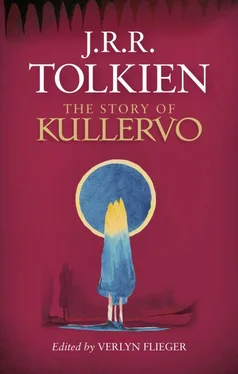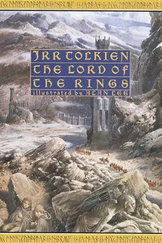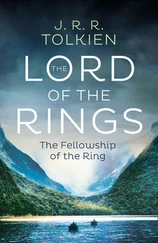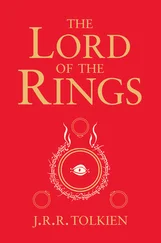We will avoid the Peak in Darien, if only for the reason that I at any rate am not remaining silent about/upon it — still you do feel like a Columbus landing on a new continent, a Thorfinn Karlsefni in a Vinland the Good — and better off, for your new heroic acquaintances are better fun than Skraeling or Red Indian. Of course when you first step onto the new ground you can, if you like, at once begin comparing it with the places you have come from. There are mountains, rivers, grass, and other things here much as the[re] were there; many plants and some animals (especially the ferocious human species) may seem familiar — but it is more than likely that an indefinable sense of newness will either delight or disturb you too much for comparisons, there will be a glamour of strangeness even upon the familiar things; the trees will group themselves unusually on the horizon; the birds will make unfamiliar music; the inhabitants will talk a wild and at first unintelligible lingo. After the country and its manners have become better known to you, and you have got on speaking terms with the natives, you will, I hope, find it jolly to live awhile with this strange people and these new gods, with this race of unhypocritical low-brow scandalous heroes, and sadly unsentimental lovers — some there may be who will think with regret that they have ever to go back from that land at all. There are possibly some, however, that I have not yet considered, people of irreproachable education and faultless urbanity who would desire only to catch the first liner back to their familiar cities. These people had better be off soon. I have no defence to offer them for the ‘Land’ or its ‘Heroes’; for to them it is useless to say that, if the heroes of the Kalevala do behave with a singular lack of dignity and even decency, and with a readiness for tears and dirty dealing, that is part of their especial attraction! After all they are not really more undignified — and are much more easy to get on with — than is a medieval lover who takes to his bed to lament the cruelty of his lady in that she will not have pity on him, condemning him to a melting death; but who is struck with the novelty of the idea when his kindly adviser points out that the poor lady is as yet uninformed in any way of his attachment. The lovers of Kalevala are forward and take a deal of rebuffing. There is no Troilus to need a Pandarus to do his shy wooing for him; rather here it is the mothers-in-law who do some sound bargaining behind the scenes, and give cynical advice to their daughters calculated to shatter the stoutest illusions.
Wonder and a little bewilderment were at any rate my experience when I first came upon the Kalevala — crossed, that is, the gulf between the Indo-european-speaking peoples of Europe into the smaller realm of those who still cling in queer corners to half-forgotten tongues and memories of an elder day. The newness worried me, sticking in awkward lumps through the clumsiness of a translation that had not overcome all the peculiar difficulties of its task; it irritated while it attracted — but the more I read of it, the more I felt at home and enjoyed myself. Then I made a wild assault on the original language, and was at first repulsed with heavy losses, and can never be said to have taken the position. Still it is easy to see why translations are not very good, or very near to their original — they are dealing with a language separated by an immeasurable gulf in nature and in method of expression from English. Finnish is an odd tongue, very fitting to the ‘Land of Heroes’ (as is natural), and as different from anything that you are familiar with as the tales of these poems are from the tales you knew before.
One repeatedly hears the ‘Land of Heroes’ described as the Finnish National Epic — as if it was of the nature of the universe that every nation (dreary word), besides a national bank, and government, should before qualifying for membership of the League, show lawful possession also of a National Epic, hall-remark of respectability, evidence indeed of national existence. But Finland does not possess one. The Kalevala certainly is not one. It is a mass of conceivably epic material (I can conceive of the epic that should grow from it with difficulty, I must confess); but — and I think this is the main point — it would lose all that is its greatest delight, if ever it were one unhappy day to be epically handled. The mere stories, bare events, alone could remain; all that undergrowth, that rich profusion and luxuriance, which clothe them would have to be stripped away. Indeed, the ‘Land of Heroes’ is a collection of exactly that absorbingly delightful material which on the appearance of an epic artist, and of an age lofty-minded enough to produce him, has elsewhere inevitably been cast aside, and fallen at last out of even ‘oral literature’ into disuse and final oblivion. Barely in the Kalevala do passages or episodes appear that one can conceive of as capable of being tuned to the higher emotional pitches required by the greater poetry. It is to all that body of strange myth, of queer troglodyte underworld of story, of wild jugglings with the sun and moon and the origins of the earth and the shapes of Man, that in Homer (for instance) has lightly been pruned away till only a few incongruous traces of its former presence are left — it is to this that most of the Kalevala may be compared and not to the large grandeur of the epic theme, nor to its conscious humanity. Or again it is to the weird tales, the outrageous ghosts, and the sorceries and by-tracks of Northern imagination that crop out at times into the usually intensely clear upper air of the Sagas that the Land of Heroes can most often be likened, not to the haughty dignity and courage, the nobility of mind and of body of which the great Sagas tell. Yet the queer and strange, the unrestrained, the grotesque is not only interesting it is valuable: it is one of the eternal and permanent interests and attractions of men. Nor is it always necessary to purge it all out in order to attain to the sublime. You can have your gargoyles on your noble cathedral; but northern Europe has lost much through too often trying to build Greek temples. Tonight I am not in the least concerned however even to be sublime — I am content to turn over the pages of these mythological ballads — full of that very primitive undergrowth that the literature of Europe has on the whole been steadily cutting away and reducing for many centuries with different and earlier completeness among different people[.] I would that we had more of it left — something of the same sort that belonged to the English— but my desire is not due to one very dreadful and fatal motive; it is not adulterated with science; it is clear of all suspicion of Anthropology. Any such collection as this would be, and indeed I am only too well aware is, the playground of anthropologists and comparative mythologists, where they luxuriate mightily awhile — but however good and interesting in its own way their sport and hunting may be (I fear I am often sceptical) it is as foreign to my present purpose as would be the processes of the manufacture of cheese. Commentators, I know, make many notes to these poems such as: ‘compare this story with the one told in the Andaman Isles’, or ‘compare that belief with the one mentioned in the Hausa folk-tales’, and so forth — but don’t let us. These notes seldom prove anything more than that Finns and Andaman Islanders are though rather different to look at nearly related animals, and that we knew before. Let us rather be glad that we have come suddenly upon a storehouse of those popular imaginings that we had feared lost, stocked with stories not yet sophisticated into a sense of proportion, with no thought of the decent limits even of exaggeration, with no sense (or certainly not our sense) of the incongruous, unless, as we may at times suspect, incongruity is delighted in. We are taking a holiday from the whole course of European progress of the last three millenniums, and going to be wildly un-hellenic and barbarous for a time — like the boy who hoped that the future life would provide for half-holidays in Hell far away from Eton collars and hymns. For the moment we are not to apply our superior modern intellect to the analysing of these things. We should rather try to enter into their especial spirit on terms of equality. The vivisectionist is able to make a case out for himself, but no one believes that he knows more about dogs than the man that keeps them as pets — but even the superiority that enters into the word pet should be got rid of — I should have said who makes a companion of a dog. The only analysis I have allowed myself is a gentle probing into my own feelings of pleasure into the savour perceived in these poems; some little effort to describe the life, the landscape and the people of this land as they presented themselves to me.
Читать дальше












